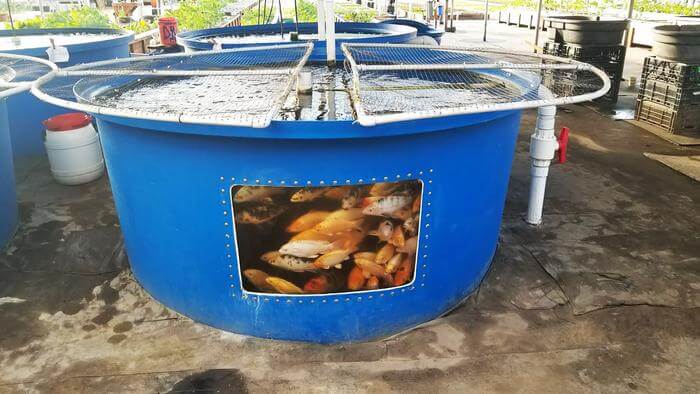Researchers at the University of Gothenburg have found that fish waste can be converted into biogas, providing an energy source and nutrient-rich fertilizer for aquaponic farms. In aquaponics, a system combining fish and vegetable farming, the nutrient-rich water produced by fish is used to fertilize plants. Until now, fish waste has been considered a byproduct with little value. However, by breaking down the waste in an environment without oxygen, researchers have been able to produce biogas consisting of 70% methane, which can be used as a fuel in aquaponic farms.
“By breaking down fish faecal matter in an anaerobic environment – known as digestion – we can obtain a concentrated gas mixture of 70 percent methane that can be used as fuel. This can make aquaponics a source of energy,” said Victor Lobanov, a doctoral student of marine biology at the University of Gothenburg.
The study also revealed that the nutrients released during the digestion process are more readily available to plants compared to synthetic nutrient solutions. Fish waste contains valuable nutrients that can contribute to more sustainable food production in aquaponics systems.
Another benefit of using the biogas is the production of carbon dioxide, which is essential for plant growth in enclosed spaces like greenhouses.
While the digestion process has been tested in a laboratory, a pilot project in a commercial aquaponics facility is set to begin this summer. The pilot will provide insights into the system’s resilience and guide the development of modular digestion systems that can be integrated into existing aquaculture and aquaponic setups.
The researchers also believe that this technology could have applications beyond aquaponics, such as in other animal husbandry sectors like piggeries. The leftover sludge from the digestion process remains highly nutritious and can be used as traditional fertilizer for fields. This new process reduces the amount of waste generated by farms while also producing energy and an excellent fertilizer for hydroponics.
“In many countries, the quantity of fertilizer produced in livestock farming is a problem. It can only be spread on fields during certain times of the year, and removing wastes from the farm is associated with extra costs during pumping and transportation. Digestion of the fish solids reduces the quantity of waste produced by farms while additionally producing energy and a great fertilizer for hydroponics,” explained Victor Lobanov.
The research findings contribute to more sustainable food production methods and address challenges related to waste management in livestock farming, while simultaneously generating valuable energy resources.
If our reporting has informed or inspired you, please consider making a donation. Every contribution, no matter the size, empowers us to continue delivering accurate, engaging, and trustworthy science and medical news. Independent journalism requires time, effort, and resources—your support ensures we can keep uncovering the stories that matter most to you.
Join us in making knowledge accessible and impactful. Thank you for standing with us!

